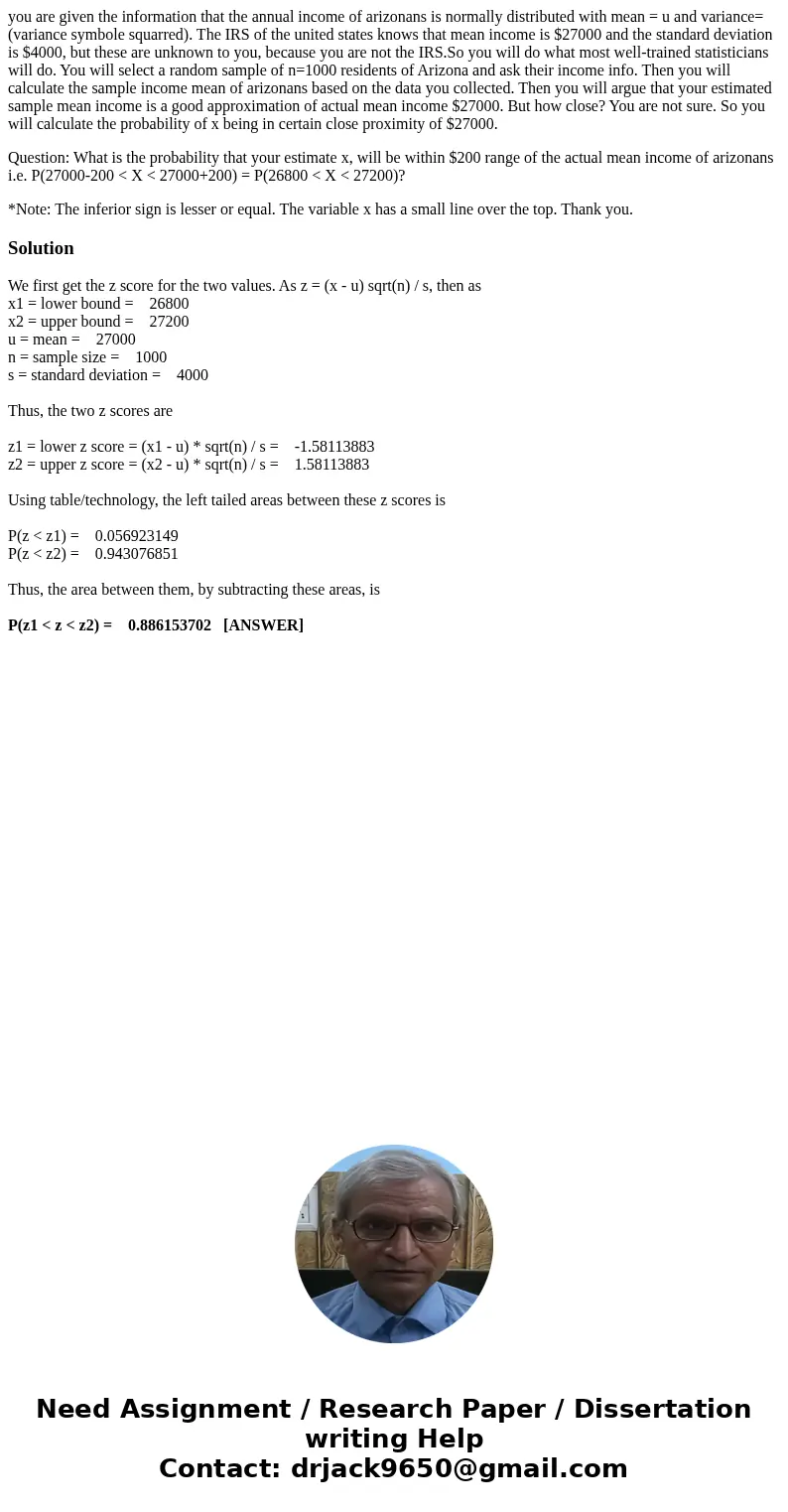you are given the information that the annual income of ariz
you are given the information that the annual income of arizonans is normally distributed with mean = u and variance= (variance symbole squarred). The IRS of the united states knows that mean income is $27000 and the standard deviation is $4000, but these are unknown to you, because you are not the IRS.So you will do what most well-trained statisticians will do. You will select a random sample of n=1000 residents of Arizona and ask their income info. Then you will calculate the sample income mean of arizonans based on the data you collected. Then you will argue that your estimated sample mean income is a good approximation of actual mean income $27000. But how close? You are not sure. So you will calculate the probability of x being in certain close proximity of $27000.
Question: What is the probability that your estimate x, will be within $200 range of the actual mean income of arizonans i.e. P(27000-200 < X < 27000+200) = P(26800 < X < 27200)?
*Note: The inferior sign is lesser or equal. The variable x has a small line over the top. Thank you.
Solution
We first get the z score for the two values. As z = (x - u) sqrt(n) / s, then as
x1 = lower bound = 26800
x2 = upper bound = 27200
u = mean = 27000
n = sample size = 1000
s = standard deviation = 4000
Thus, the two z scores are
z1 = lower z score = (x1 - u) * sqrt(n) / s = -1.58113883
z2 = upper z score = (x2 - u) * sqrt(n) / s = 1.58113883
Using table/technology, the left tailed areas between these z scores is
P(z < z1) = 0.056923149
P(z < z2) = 0.943076851
Thus, the area between them, by subtracting these areas, is
P(z1 < z < z2) = 0.886153702 [ANSWER]

 Homework Sourse
Homework Sourse